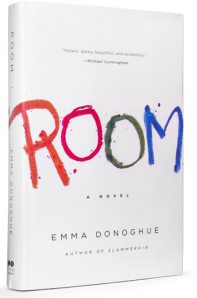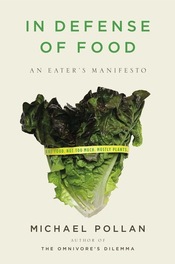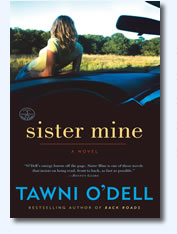If you look back over the book reviews I’ve done here, you might think I read two or three books a year, at most. In reality, I devour books. I read at least two to three a week, often more. But, because I read for escape, and most of those don’t stick with me, I don’t take the time to write anything about them.

I’ve just finished Room, by Emma Donoghue, and I know this book is going to stick with me for a very long time. A train friend was reading it recently and highly recommended it, but when she told me its basic premise, I thought I’d never be able to read it – as a mom, it sounded like it would cut way too close to the bone. Then I picked up a copy last night at Barbara’s in South Station on my way home (having finished my last book, Falling Angels by Tracy Chevalier, on the subway) and, skimming the first two or three pages, I was immediately hooked. The book came home with me, and I finished it today.
You may be wondering, what was that basic premise? Told in the voice of Jack, a just-turned-five-year-old boy, it’s about his and his Ma’s life as prisoners in an 11 by 11 foot room. This is their entire world, and it’s all Jack has ever known.
Ma is a now-27 year old woman who was kidnapped by a man unknown to her from her college campus at age 19. She has lived as his prisoner and sexual slave for over seven years in Room, and for the last five, has protected and nurtured and raised her son in astounding ways.
Jack is a most intriguing mix of nearly grown up, and still practically a toddler. The name of every item in Room, including Room itself, is capitalized in his mind, and because mostly there is only one of everything, nothing is “the” Room, or “the” Bed, or “the” Rug – it’s Room, Bed, Rug, Duvet, Skylight (which looks straight up and is their only view to Outside), investing them with life and personalities of their own.
Jack has mad-crazy language skills (in spite of being a bit shaky on grammar upon occasion) and also math skills. He can repeat back, perfectly, whole lines of what he hears on the TV, in a game he and Ma call Parrot. His vocabulary and understanding are extensive.
Whereas one might think Ma would be nearly catatonic after all those years mostly alone (her captor, who she and Jack refer to as Old Nick – because, like Santa, he only comes at night – comes to Room for only a little while a few times a week), she has made every effort to keep herself – and thus Jack – sane and as whole as possible, teaching him everything she can.
Ma and Jack have a small black-and-white TV that gets only a couple channels via Bunny (the antenna ears), and Ma has taught Jack that everything he sees on TV is fantasy (as she says later, “why teach him there are things and places out there he may never get to see or experience?”) To keep their brains from “becoming mushy” they only watch one or two shows a day, the rest of the time reading, talking, exercising, napping, playing – living as normally as Ma can make it. Jack thinks the things he sees on the TV are each their own planets – the Dora planet, the medical planet, the news planet, the animals planet.
Now, however, Jack is five, and Ma finds out that Old Nick’s living situation has become very tenuous – he has been unemployed for over six months and may be close to losing his house. She decides it’s time for them to formulate an escape plan. Of course, she’s thought of a million escape plans over the years, none of which were feasible enough to try, because of the fortress-like nature of Room, gradually revealed throughout the story. The only plan she did try resulted in Old Nick breaking her wrist, which has never properly healed.
But now her desperation is coming full bloom – Jack cannot stay in Room any longer, they both need the world. So she starts “unlying” to him – explaining that much of what they see on the TV is, in fact, real, and does exist. She tells him about her Mom and Dad, and brother Paul, that they have relatives, people who care for her and will also care for Jack. Together they work out a plan to get Old Nick to take Jack out of Room, making him think Jack is very very sick and needs a hospital, whereupon Jack will run away and get help.
While escape doesn’t work quite according to plan, in the end (about halfway through the book) it does work. Then both Ma and Jack have to start learning what it means to be living Outside, and how their lives will go on from Room.
This is a finely-crafted, incredibly engaging book. I never once got tired of Jack’s voice; his thoughts and experiences and the ways he expresses them ring true in every line. The author tells us, It was not Old Nick’s evil that fascinated me, but the resilience of Ma and Jack: the nitty-gritties of their survival, their trick of more or less thriving under apparently unbearable conditions. Because of this, there are no specifically horrific parts meant only to terrorize the reader. I was always aware, as an undercurrent, of the terrible circumstances of Ma’s and Jack’s existence, but the love and light and life that they shared together was the most stand-out part of the story.
Ms. Donoghue has done a remarkable job of showing us exactly their resilience and desire to survive. You should read this book.





